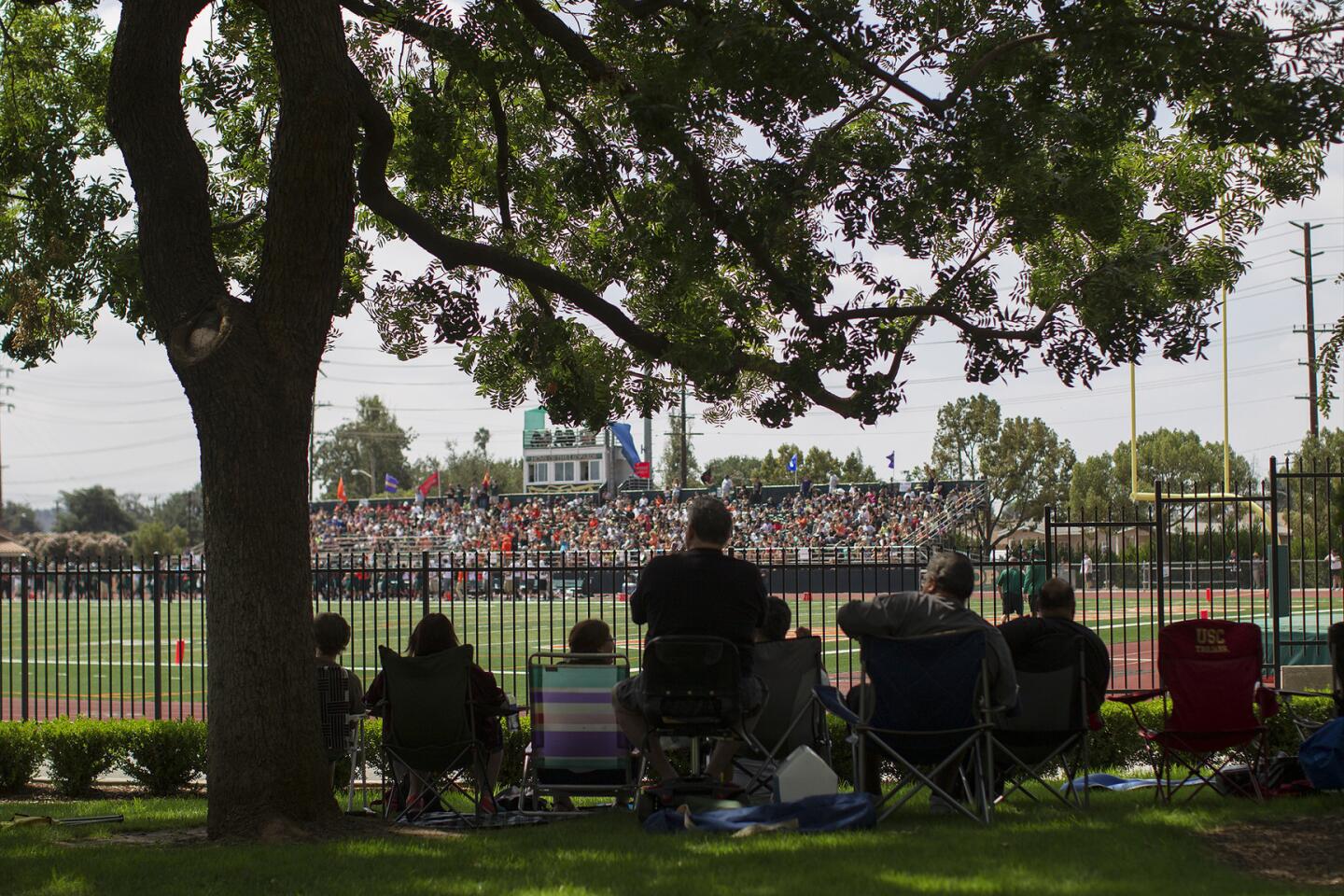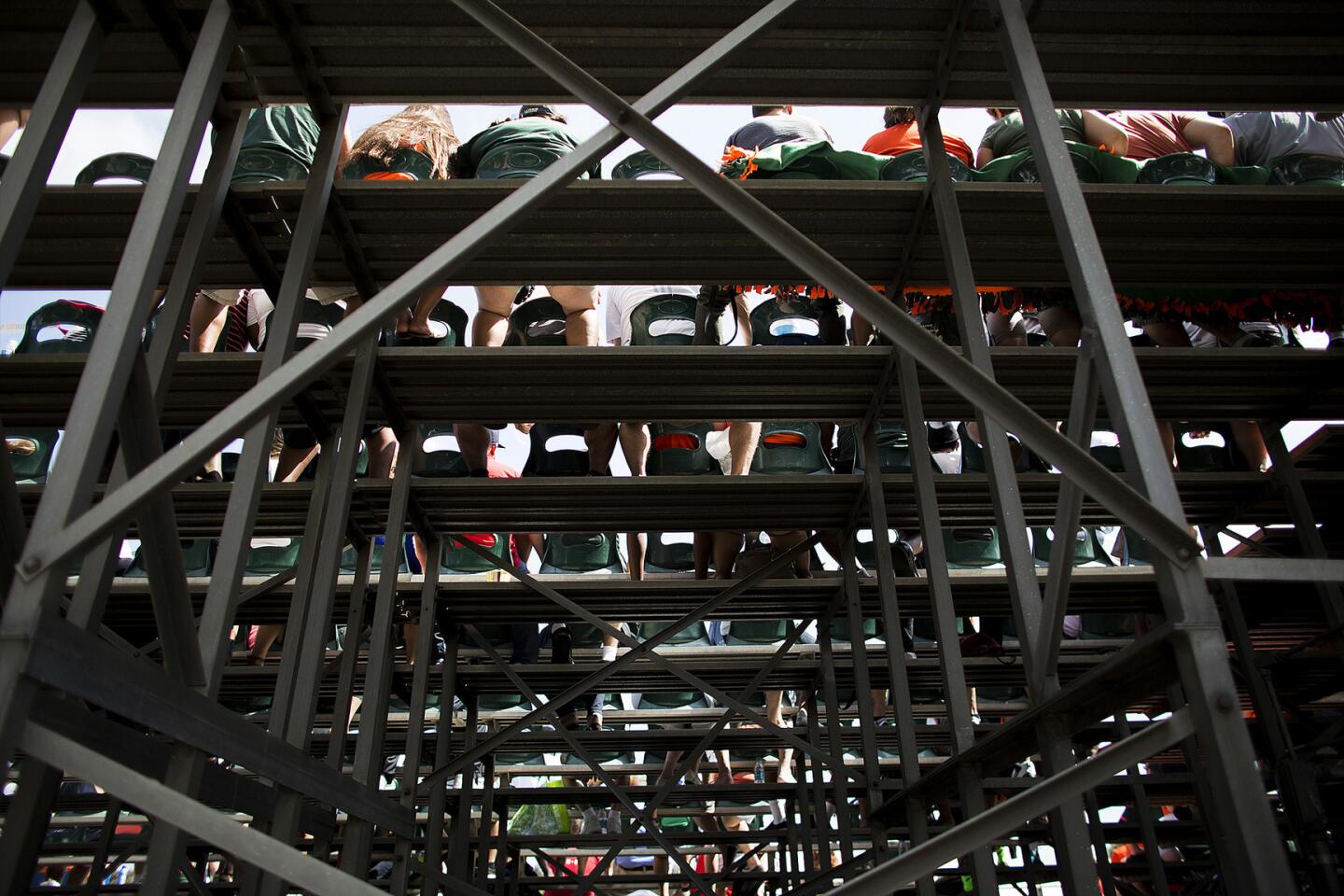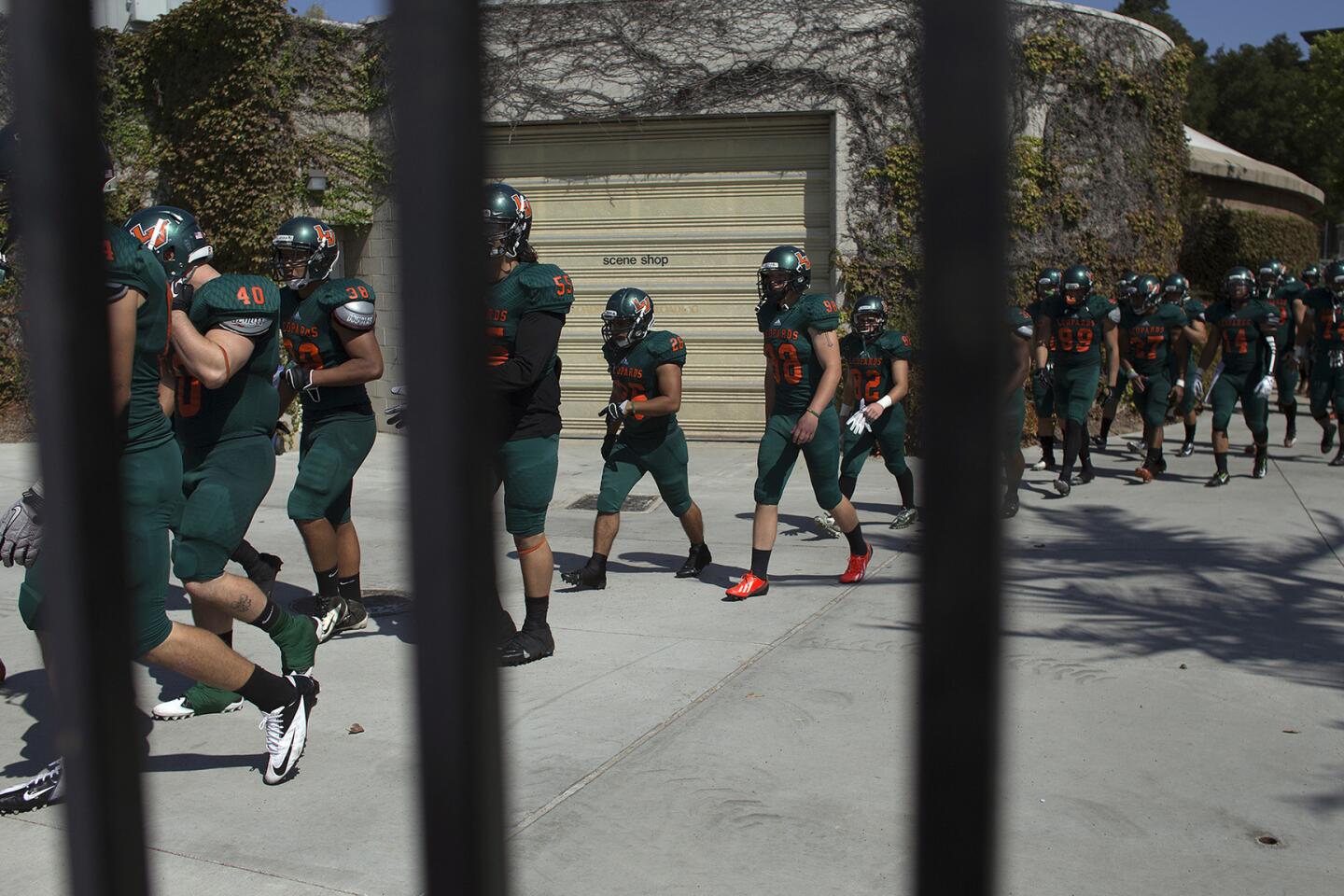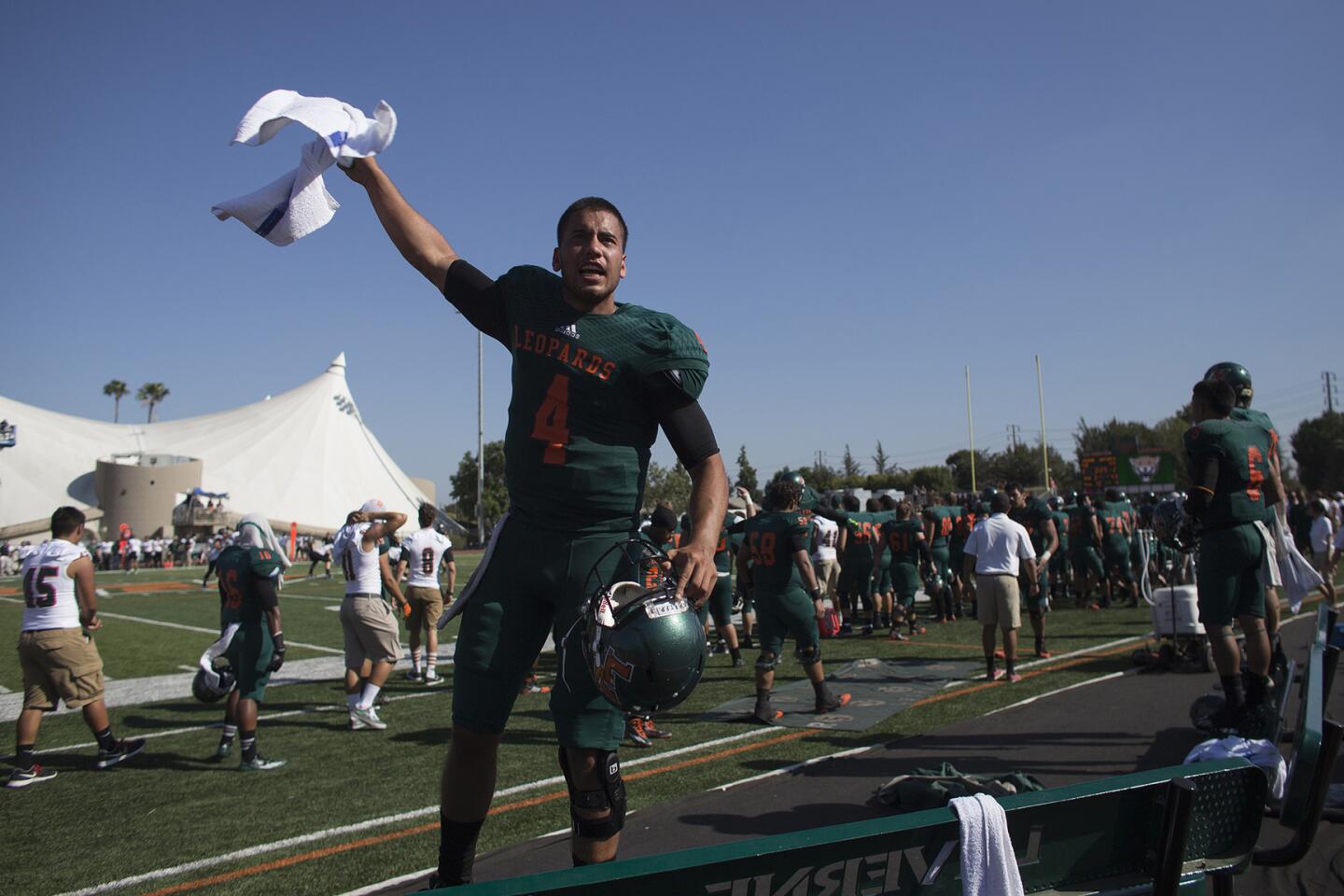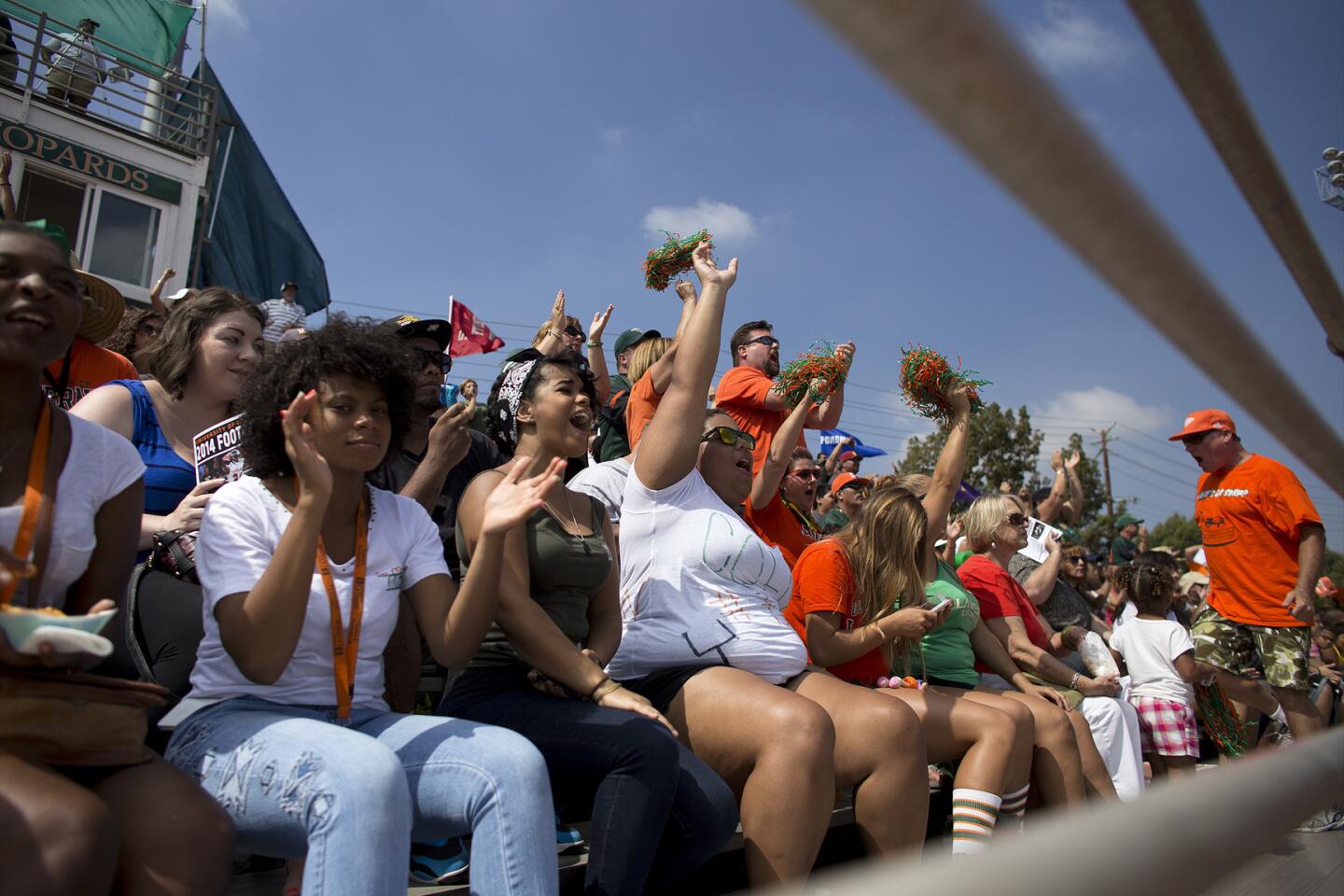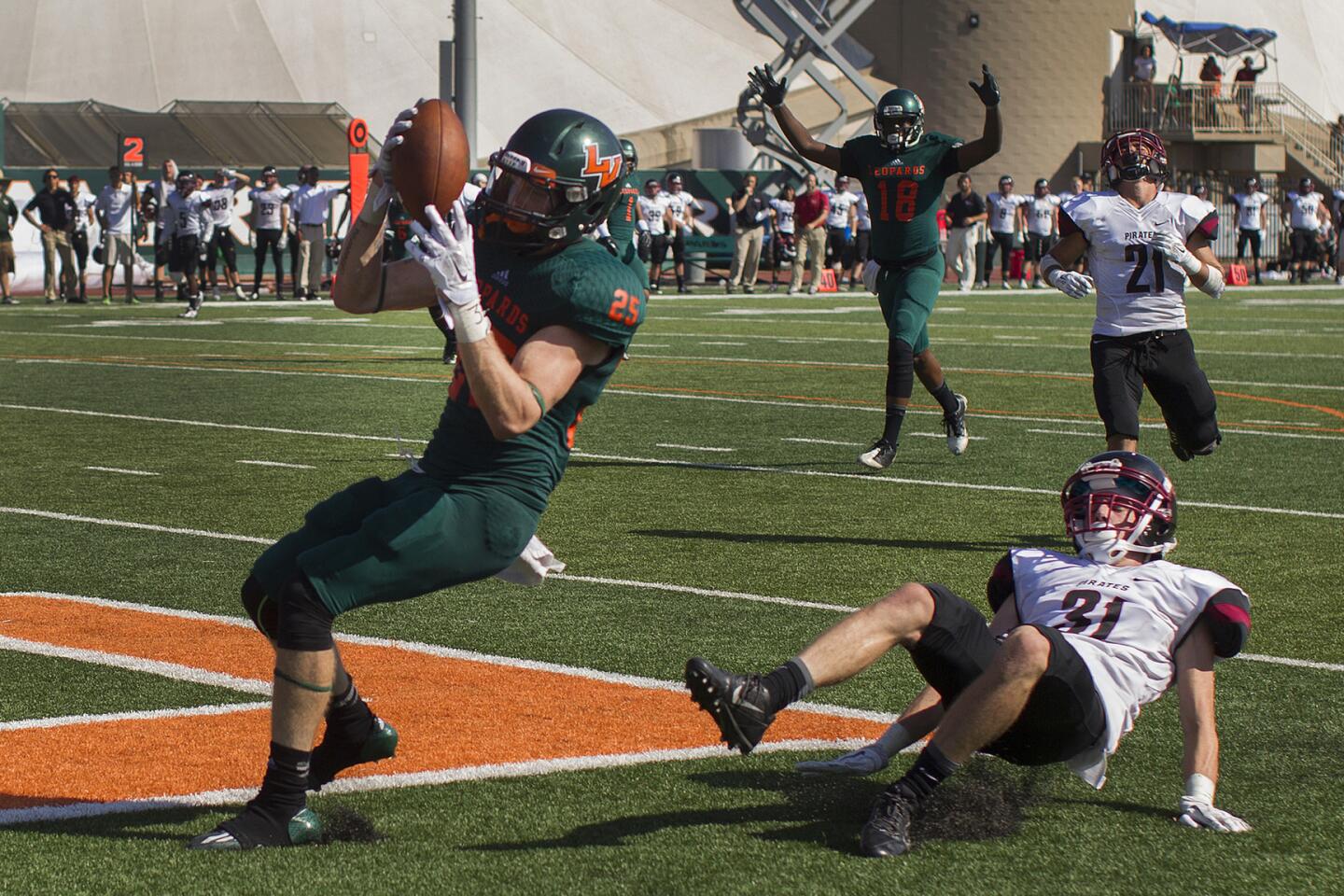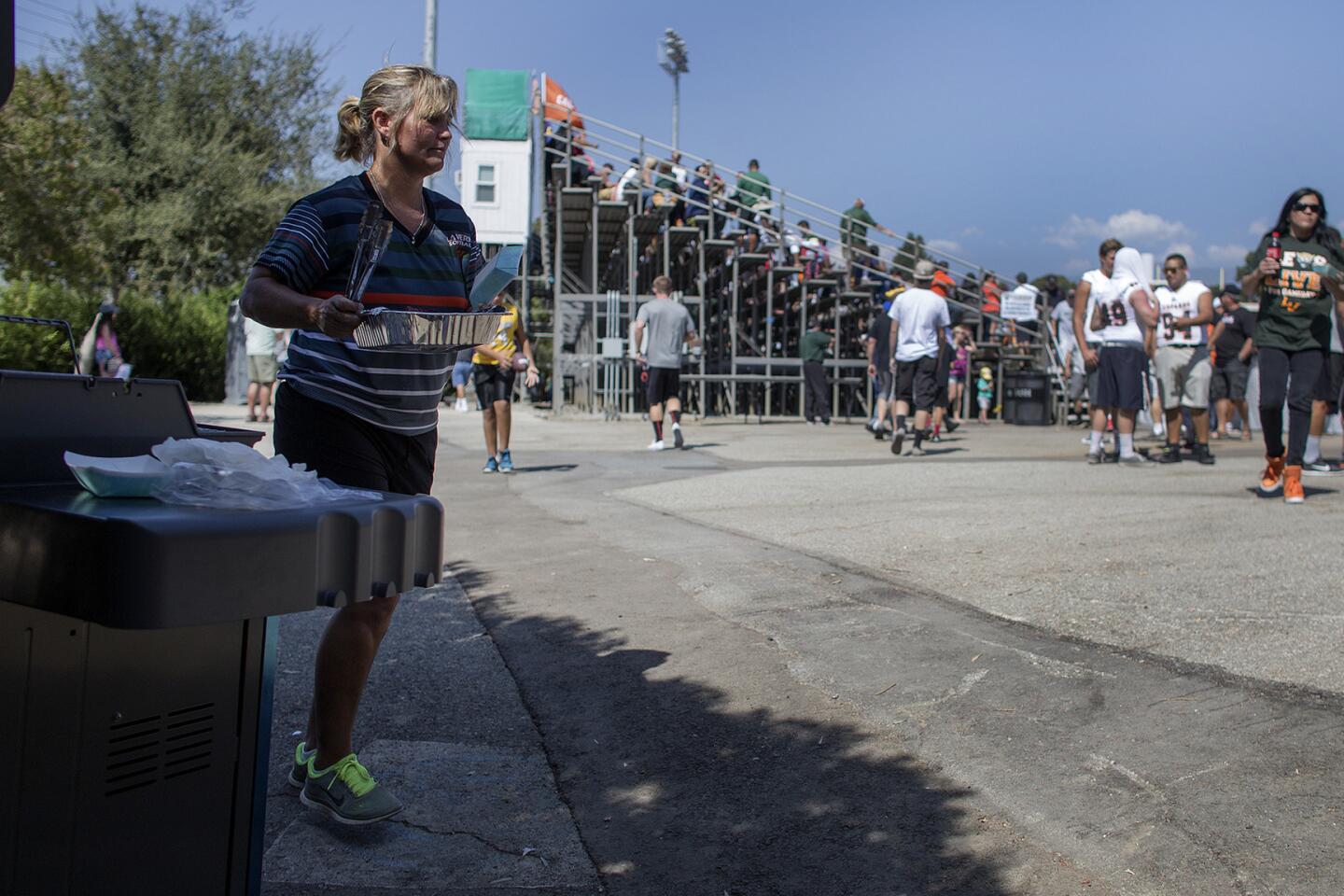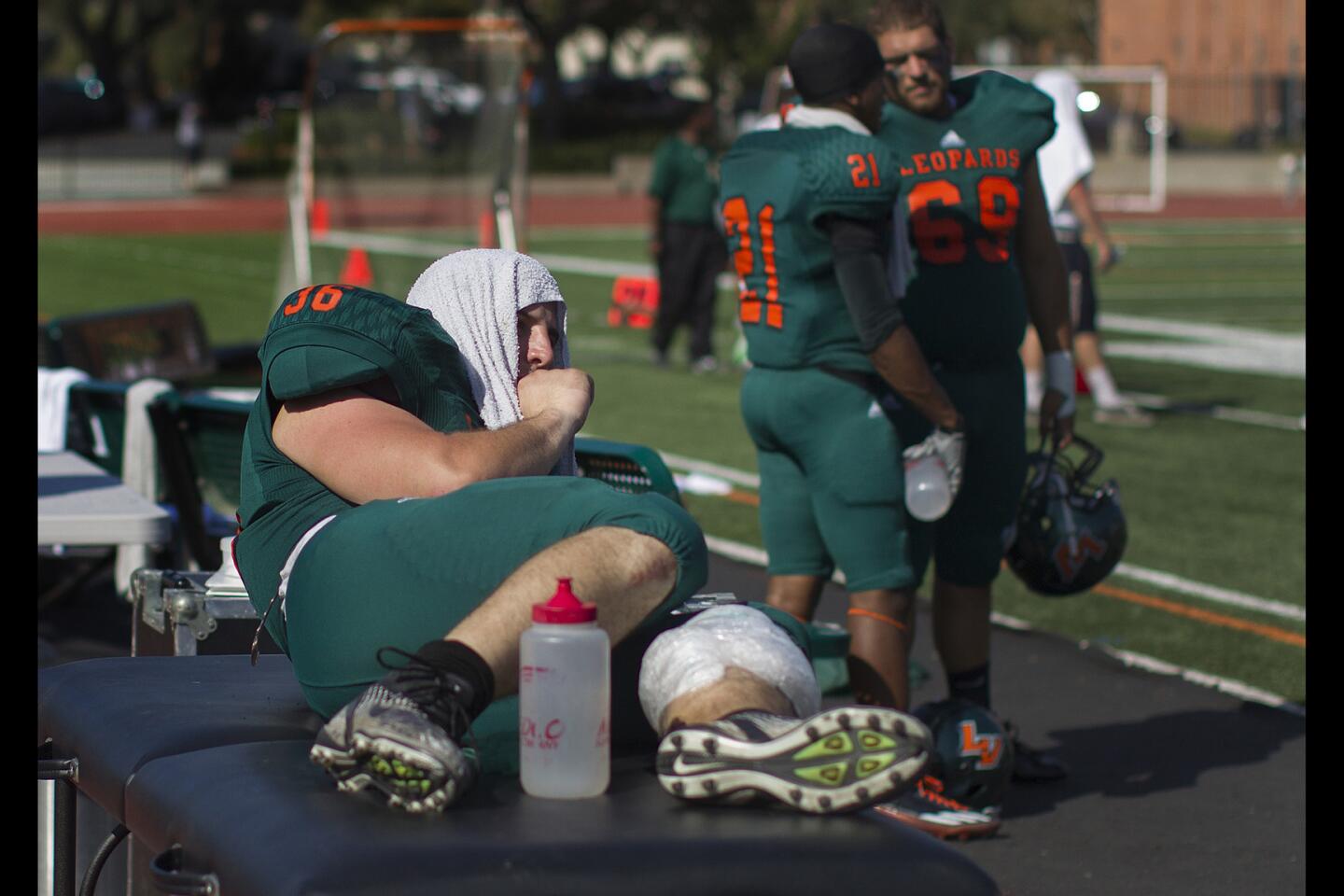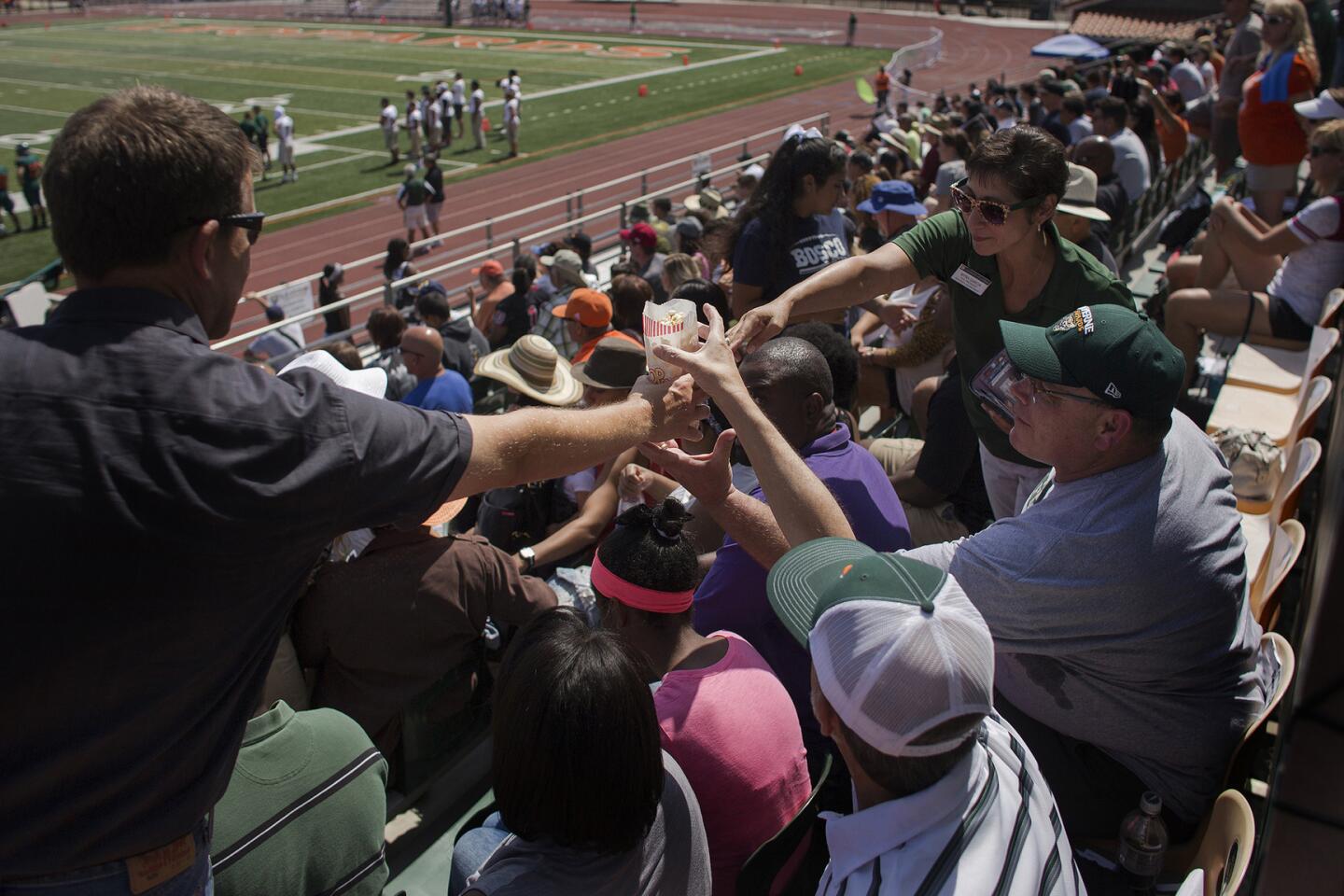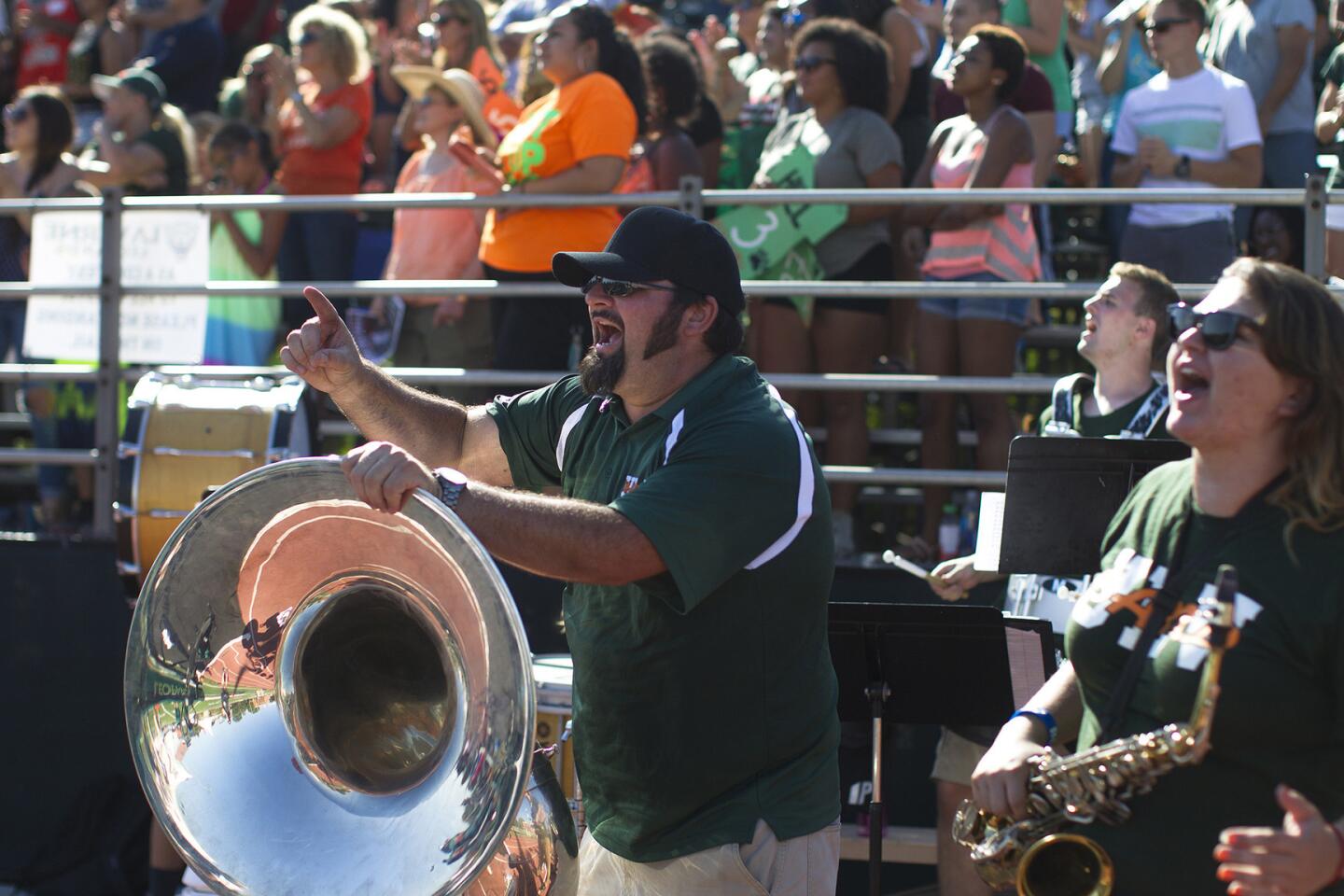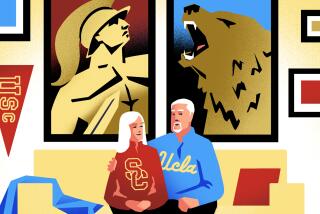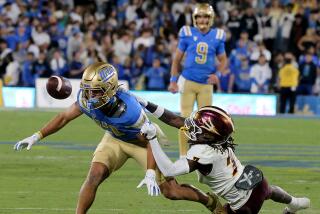Getting a taste of football at its purest
The desperate search for good news in sports speeds far away from the images of Ray Rice, Adrian Peterson and Jameis Winston. The search burns rubber and blows exhaust on misbehaving athletes, enabling teams and incompetent commissioners.
On a pristine Saturday, the search ends under a large elm tree towering outside the corner of a pristine football stadium in a leafy pocket of east Los Angeles County. Under the welcoming branches are folks spread out on lawn chairs and blankets, soaking in the shade and an unobstructed free view of their sons playing football for University of La Verne in an NCAA Division III game against Whitworth University from Spokane, Wash.
“Hey, I saw the Goodyear blimp flying across the stadium just before the game,” says Jan Pfennings, whose grandson Jan is a junior lineman. “But then it just kept going.”
The search ends at a college football game with no glitz, no glamour, no Heisman hopefuls, no first-round draft picks, nothing but bouncing players and beaming parents and lessons rooted far too deep to be beamed on television by some giant balloon.
“USC and UCLA aren’t playing today, so you came here, right?” says Pfennings with a grin. “Welcome to the real thing.”
The welcome begins with free parking across the street from Ortmayer Stadium, a $10 ticket for adults, and a cozy spot in metal bleachers that occupy only one side of the field and are nearly full this day with 1,476 people.
Most of them are parents and friends and members of La Verne’s large and close-knit university family. In the middle sit a graying, distinguished gentleman who occasionally stands up and leads cheers with the bleating whine of an antique bugle. He is David Werner, chairman of the English department, and he has been trying to get this right for more than 20 years.
“After all this time, I still can’t play the thing,” he says. “When I play ‘Charge!’ it starts out good, but then sort of becomes a dying quail.”
Down below Werner, the brilliant green turf field is filled with La Verne students who try to match the professor’s valiant efforts with their own. The football team, dressed today in dark green jerseys with orange numbers, fills the entire sidelines with unbridled hope.
The team has 111 players because nobody gets cut. None of them are on scholarship. Most of them will be playing football for the last time in their lives. They are small and fast and play with a relentless passion that results in giant hits, giant misses and constant leaping chest bumps.
“This is exciting, it’s not perfect, it’s got all the attributes professional football and big-time college football doesn’t have,” says Werner. “This is what sports is supposed to be.”
It’s the sort of sport played throughout Southern California on fall weekends, as the Leopards are part of the Southern California Intercollegiate Athletic Conference, a Division III group that contains eight football teams ranging from Cal Lutheran to Chapman.
It’s football that isn’t judged by the final score, but the student journey, the lessons that lead these small-school graduates to making big impacts in society.
“We’re paying a lot of money for him to be here just for the football,” says a smiling Dawn Nishanian, mother of sophomore end Matt.
It’s football that isn’t surrounded by shallow hype, but safely ensconced in the warmth of neighborhoods, a truth evident in every corner of Ortmayer Stadium.
Check out the La Verne public-address announcer. His name is Bob Dyer, he’s a 1963 graduate who has been married to another La Verne graduate for 50 years and has been announcing games for more than half that time. He doesn’t preach to the crowd, he talks to them, urging them to the concession stand during timeouts, asking them to keep their officiating quibbles quiet.
When he mispronounces a name, a parent will often turn around in their seat and shout up a correction. If he’s ever ambiguous about a yard line, well, from his press box seat he can’t see one of the end zones.
“I’m the kind of PA guy that has to move around a little bit,” he says.
Now check out the group of kids standing on the track behind the La Verne bench, they are announced as “The World Famous La Verne Band,” all 16 members, although only 15 show up Saturday because one of the drummers had to work.
The band, which is only 3 years old and doesn’t yet march, is led by a tuba player, Joshua Williams, a 33-year-old student who delights in directing his group in the song, “Stand Up and Fight.” It’s the school’s first fight song, kind of, sort of. Williams wrote it a couple of years ago, but it hasn’t yet been officially endorsed by the administration. So the band just keeps playing it in hopes that it sinks in.
“We may not be big, but the heart is here,” says Williams.
Back behind the bleachers, check out the concession stand known as Corni’s Corner, named after the wife of stadium namesake and famed La Verne coach Roland Ortmayer. Working a portable grill filled with hot dogs and carne asada is the former U.S. Olympian and current Leopards softball Coach Julie Smith. Selling the food — four bucks for one of their famous tacos — are members of her team.
“I know a lot of my Division I friends are doing this, but there is nothing beneath us here,” she says. “You have to love the life.”
Few loved Saturday’s ending, a late Whitworth touchdown followed by a desperation pass that was not answered, the Leopards losing, 50-48, despite racking up 672 yards.
But the devastation didn’t last.
Within 10 minutes of the final failure, the La Verne players reveled in the success of the effort, running to the stadium fences to hug their families. Later, the team would congregate in a parking lot where the parents would cook them dinner.
“You make the big time where you’re at,” says La Verne receiver Jon Lilly after catching six touchdown passes. “No matter what happens, this is a blast.”
The Leopards’ coach, Chris Krich, didn’t yell at them. He actually congratulated them on not whining or moping about the losing on a late touchdown, and applauded them for overcoming five deficits before finally falling short.
“Our guys are learning how to be successful men,” said Krich of his 1-1 team. “How you handle adversity is what sets you up as a man, and we handled it during the game, and we’re handling it now.”
After a couple of weeks of watching the sports world sink in violence, arrogance and callousness, Krich offers three other words.
“Our motto is simple — faith, courage and class,” Krich says.
Good news, indeed.
More to Read
Get our high school sports newsletter
Prep Rally is devoted to the SoCal high school sports experience, bringing you scores, stories and a behind-the-scenes look at what makes prep sports so popular.
You may occasionally receive promotional content from the Los Angeles Times.
